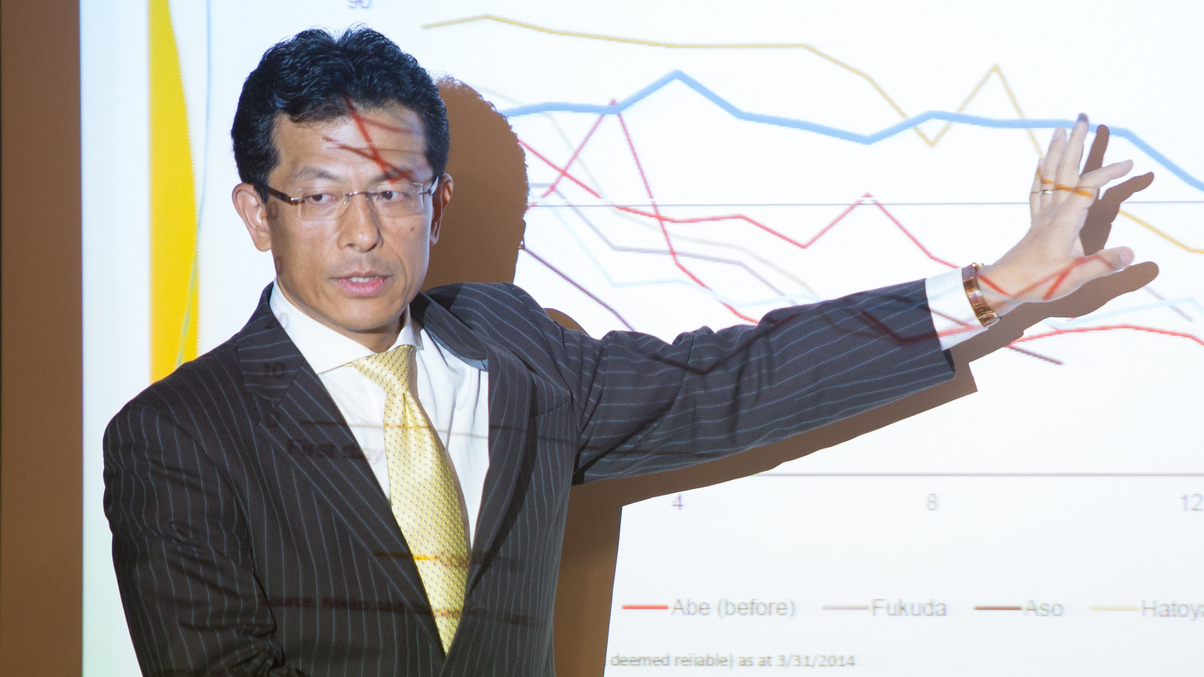Abenomics on track, says Nikko AM CIO
Hiroki Tsujimura explains why he thinks Japan's package of stimulus measures is working and further positive moves are in the pipeline.

Ahead of an announcement expected later this month on Japan’s growth reform, Hiroki Tsujimura, chief investment officer of Nikko Asset Management, has argued that Abenomics is on track.
Sign in to read on!
Registered users get 2 free articles in 30 days.
Subscribers have full unlimited access to AsianInvestor
Not signed up? New users get 2 free articles per month, plus a 7-day unlimited free trial.
¬ Haymarket Media Limited. All rights reserved.


